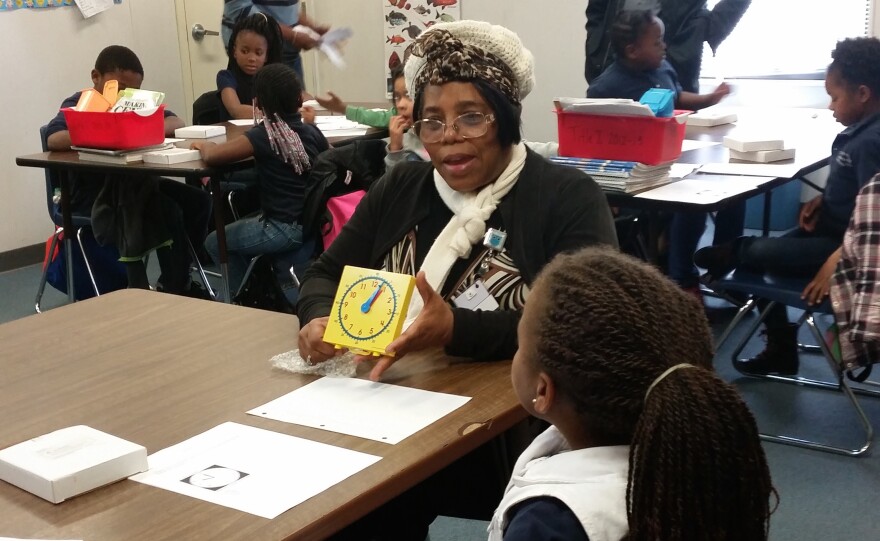The Alachua County Foster Grandparent Program (FGP) is currently recruiting new grandparents to help foster and educate underprivileged and special needs children in schools, after-school care and daycare programs across the county.
The program, founded in 1973, is federally funded through a grant sponsored by the Corporation for National and Community Service. Alachua County has matched the federal funds for the past 43 years, which is required by the grant, aside from a brief period in 2013 when the federal government was shutdown.
Program coordinator Samantha Fleming said that now, even with 70 volunteers, the program is still in need of new recruits.
Volunteers must pass a background check, get medical clearance from a physician, have stable income and be willing and able to jump in and gets hands-on with this one-on-one approach to child development.
“It’s not a sedentary-type job,” Gene Cysowsky, acting social services division director, said. “You’ve got to be physically able to interact with youngsters.”
The foster program serves about 150 children and operates in 29 different locations throughout Alachua County, including Alachua County Public Schools, the Early Learning Coalition of Alachua County, and several other single-standing agencies. There is a lengthy waiting list of teachers who are hoping to be assigned volunteers to help in the classroom and work with the students.
“I think you could probably say that every teacher in Alachua County would probably be readily able to identify two kids in a classroom that could use the nurturing and support from a foster grandparent,” Cysowsky said.
Participating educators are tasked with identifying two children who they would classify as special needs or who they think can benefit most from having a foster grandparent.
“It really is a broad range of reasons that the teacher selects the children that the grandparents focus their time,” Fleming said. “It doesn’t necessarily mean that they’re handicapped. It could mean that they’re behind their peers in their reading level, or they have some family issues going on at home where they need some emotional support.”
While the program is about child nurturing, the children are not the only ones who benefit.
Children involved in the program are getting a more hands-on learning experience that also provides emotional support and the introduction of a role model into their lives. The foster grandparents are finding purpose in educating and nurturing the children they work with. Then, there are the teachers who are given a helping hand in the classrooms and a companion to help guide their students through childhood.
“I think often times it’s really hard for me to determine who is truly getting the most out of this program and the relationship,” Fleming said. “Is it the grandparent? I don’t know. I think it’s the kid! I don’t know – those teachers!”
Dorothy Thompson, 66, a foster grandparent volunteer at Caring and Sharing Learning School in Gainesville, said that the children help keep her on her toes.
“They inspire me to want to learn,” Thompson said. “They inspire me to become an educator because there’s so much information that they need to learn and I’ve realized that I need that refreshing myself.”
Thompson, who has been a volunteer foster grandparent for roughly five years, said that she appreciates the benefits offered through the FGP, but that it’s about more than that for her.
“I’m reminded that if you don’t use it, you’ll lose it, and I’ve realized how much I’ve lost because I really just don’t remember a lot, and they help bring it back to my memory and make me want to learn more to help them,” she said.
Experiences like Thompson’s are common among the volunteers.
“The symbiotic relationship that exists between youngster and someone at that age is such a neat, inter-generational experience,” Cysowsky said. “Those kids help those seniors stay young and vice versa.”

